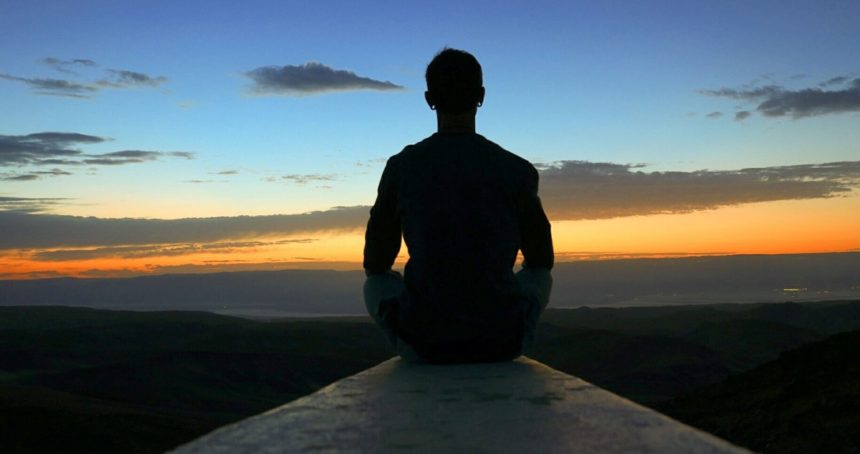A personal and heartfelt account of the need for decolonization of the Indian mind.
Towards mental freedom

Last year, perplexed by the subtle errors I had made in some of my college assignments, I went to my professor (at University of Pennsylvania) to seek his advice on how to go about preventing these errors from cropping up in the future. He recommended that I discuss my solutions with my classmates as he believed that it would be effective in detecting the errors I so wanted to avoid. But that didn’t quite do the trick for me as I wondered how talking to my peers would ever substitute for expert guidance and I expressed this in so many words. He thought about it, and looking past me, gazing into the distance he remarked, “The thing is that you are looking for authority. But sadly, there is no authority.”
This rather matter-of-fact statement sounded quite profound to me. Since childhood, I had been thinking that the West, represented by the genius of Newton, Euler, Darwin and the great modern institutions, is the authority on science. I believed that they had the monopoly over the truth and that somehow the truth must conform to the conceptual constraints imposed on it by the western academia. But the professor’s statement jolted me out of an unthinking servility to a powerful dogma. Gradually, I started realizing that the truth of nature, which science wants to know, is impartial and independent. It is impartial in the sense that a poor Asian villager brought up on a diet of folklore and mythology is just as capable of accessing it as is a highly privileged European, exposed to the latest intellectual fads. And it is independent in the sense that social acceptance (of a theory) has no correlation with its ontological validity.
These realizations are important to me, because as I grew up in India, I developed the feeling that there is little or no worth in indigenous traditions and that success is proportional to the approval you earn from Western luminaries and institutions. I have good reason to believe that this is not just my own feeling, but that of a vast number of my compatriots. We judge ourselves with the yardstick of Western recognition, be it in education, eating, clothing or livelihood. Their fads are our fads, their trends are our trends and more tragically, their beliefs have become our beliefs. We hardly stop and question ourselves as to what we are embracing and why. We are conditioned to think that their way is the best way and this hardly feels odd. In the process, we are turning or have already turned into a shadow of the West. There is indeed nothing objectionable in adopting the best from another culture. The problem starts when the adoption happens overwhelmingly in one direction, revealing how striking the power imbalance between the two cultures really is.
But then one might ask why even that is a problem? We may believe that the West is moving towards something good and by faithfully following them, we are also moving towards that ideal. However, this sort of indiscriminate aping is antithetical to our interests in two ways. First, it makes us unreasonably optimistic about the wisdom of modernity, given that modernity is a product of the relatively recent historical experience of the western nations. Such a mentality leads to a crippled identity, characterized by a diminished sense of self-worth, which is always looking at others for validation. This is, of course, a form of mental and intellectual bondage. Further, since we end up using a borrowed moral compass, we abandon the control of our own future to historical narratives that could be potentially hostile to our interests.
Secondly, as Sri Krishna tells Arjuna in the Bhagavad Gita, aping another is a foolish idea. It is better to be mediocre at one’s own svadharma as opposed to trying to excel at something that goes contrary to one’s natural constitution (svabhava). This brings to mind the story of the crow who wanted to become a peacock, by attaching a few quills of the peacock on its back. It neither remained a crow nor became a peacock, but instead turned into something of an abomination. What is true of the individual is also true for the collective. Every culture is different from the other and brings something unique, original and positive to the spiritual evolution of the human species. Therefore, it is incumbent upon us to preserve our unique ways of thinking and living, so that we don’t deny the world a chance to benefit from the best that India has to offer, as the human race deals with multiple crises of an unprecedented scale.
So, blind aping deprives us of self-esteem and more importantly, identity. Instead of imitating the west, which is easy but self-defeating, we must learn to take the hard but vitalizing path of finding out what we really stand for, of searching for our soul. As I pointed out earlier, truth is impartial and independent. It’s time we, as a nation, try to find our truth, our roots, our identity. It’s a journey of self-discovery that we need to take and indeed, many of us have already embarked on. We may take cues and directions from other peoples, but the journey is ours and ours alone. The only thing essential for this is courage: the courage to seek and face the reality, the courage to tear apart all mental bondages. Only then would we stand up as a nation and exert a cultural influence on the global stage. We attained physical freedom seventy years ago. Let us now strive towards attaining mental freedom. May we all find the truth. ॐ

Leave a Reply